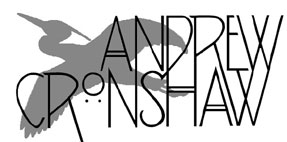
- Andrew Cronshaw website -
- Andrew Cronshaw MySpace -
- Cloud Valley Music website -
- Andrew Cronshaw website -
- Andrew Cronshaw MySpace -
- Back to Reviews Introduction page -
Written in
fRoots
issue 331/332, 2011
JOHANNA JUHOLA
Fantasiatango
Texicalli TEXCD 106 (2010)
TANGO-ORKESTERI UNTO
Kylmä Rakkaus – Cold Love
ARC EUCD 2281 (2010)
LEPISTÖ & LEHTI
Helsinki
Aito AICD 012 (2008)
I’ve enthused about Finnish accordionist Johanna Juhola a fair bit recently, in
reviewing her albums with Timo Alakotila, Spontaani Vire and Pekka Kuusisto and
seeing her reliably classy and quirky live shows, most recently a very elegant
set as a member of Tango-Orkesteri Unto at Helsinki’s big and delightful World
Village free festival.
Fantasiatango, which took a while to arrive for
review and has already spent a couple of months climbing up the European World
Music top 20, is her latest album, and it features several of her band
involvements: the Johanna Juhola Trio (with guitarist Roope Aarnio plus
programmer-producer Tuomas Norvio), the duo with pianist Milla Viljamaa, and the
quartet Johanna Juhola Reaktori (with Norvio, Viljamaa and bassist Sara
Puljula).
When Finnish accordionists are mentioned, the names
Maria Kalaniemi and Kimmo Pohjonen always come up. Juhola shares with both of
them a background at Sibelius Academy folk music department, and the influence
of Finnish folk music in their work. But she takes her own path, combining her
free-bass and chord-bass chromatic button accordions, mouth-blown claviola, toy
piano and glockenspiel with Norvio’s live electronics in surging melodic
compositions in which one can hear the influence of soulful, direct Finnish and
complex Argentinian tango, Timo Alakotila’s chord-shifting, lyrical writing
style and other shapes of Finnish folk music. In Happihumppa even the
stolid populist polka-style humppa is alluded to, fused with Finland’s other de
facto national dance tango and treated to fine fiddling by classical master and
electro-fiddle doyen Pekka Kuusisto.
We’ve certainly come a long way since the time when
accordions seemed, to me anyway, to be brutal instruments of musical stodge, far
removed from smartness or stylishness. (Actually - to qualify that - much of
that avoidance-reaction was to piano-accordions, though some fine perceptive
players have also rescued them from the mire; button accordions have in the main
seemed somewhat distanced from the stomach-Steinway’s excesses of bludgeoning
insensitivity).
www.texicalli.net,
www.johannajuhola.net,
www.myspace.com/johannajuhola
Ah, and here, just as I was about to hit the
deadline with that review, comes a new album by the aforementioned
Tango-Orkesteri Unto that so elevated a sunny June Sunday lunchtime at World
Village. Johanna Juhola, JPP’s Mauno Järvelä and Timo Alakotila on violin and
piano, guitarist Petri Hakala and bassist Hannu Rantanen back singer Pirjo
Aittomäki, a prime exponent of the warmly caressing strength and serenity that’s
characteristic of female Finnish vocal sound.
Finnish tango is a different beast from its Argentinian
precursors, and continues to evolve in a different direction, musically and in
its lyrics of love and loss set against Finland’s wide landscape of endless
green pine and birch taiga forests and lakes and its climate of cold winters and
short, intensely celebrated and often hot summers.
Unto makes rich, swirling, beautifully played and
gorgeously arranged music more evocative of ornate cafés and tea-dances than the
rural dance-floors of Finnish folk tango, with something of the longing and
passion of Portuguese fado; indeed the orchestra was formed to play at Expo’98
in Lisbon. This second CD brings a heart-rendingly seductive, surging set of
material from Finnish composers and poets from the mid 20th century into the
21st, including Juhola, Alakotila and the doyen of Finnish tango composition
from whom the band takes its name, Unto Mononen.
www.arcmusic.co.uk,
www.tangoorkesteriunto.com
The duo of Markku Lepistö’s 2-row diatonic and 5-row
chromatic accordions with Pekka Lehti’s double bass is a conceptually simple but
satisfyingly full-sounding combination that over the last couple of years has
been one of Finland’s most world-gigging units, and they’ll be appearing at this
year’s Womad UK.
Lepistö has long been one of the most admired
squeezers on the Finnish folk music scene, playing with among others Unto
guitarist Petri Hakala, Pirnales, Progmatics and Värttinä, and Lehti has
likewise been the bassist of choice with many bands. Helsinki is a set of eight
compositions, including a tango, in which they draw out the tonal possibilities
of their instruments in intricate pacey numbers and lyrical slow pieces.
Finland’s national instrument, the kantele, is
currently being reborn, and the country’s fiddlers are more skilful and
inventive than ever, but playing that world-ubiquitous instrument the button
accordion Lepistö, Juhola, Pohjonen and Kalaniemi are proving major Finnish
artistic exports.
www.aitorecords.com
© 2010
Andrew Cronshaw
You're welcome to quote from reviews on this site, but please credit the writer
and fRoots.
Links:
fRoots - The feature and
review-packed UK-based monthly world roots music magazine in which these reviews
were published, and by whose permission they're reproduced here.
Kansanmusiikki-instituutti (Finland's national Folk Music Institute).
It's not practical to give, and keep up to date,
current contact details and sales sources for all the artists and labels in
these reviews, but try Googling for them, and where possible buy direct from the
artists.
Helsinki's Digelius Music
record shop is a great source of Finnish roots and other albums.
CDRoots.com in the USA, run by
Cliff Furnald, is a reliable and independent online retail source, with reviews,
of many of the CDs in these reviews; it's connected to his excellent online magazine
Rootsworld.com
For more reviews click on the regions below
NORDIC
BALTIC
IBERIA (& islands)
CENTRAL & EASTERN EUROPE, & CAUCASUS
OTHER EUROPEAN AMERICAS OTHER, AND WORLD IN GENERAL
- Back to Reviews Introduction page -